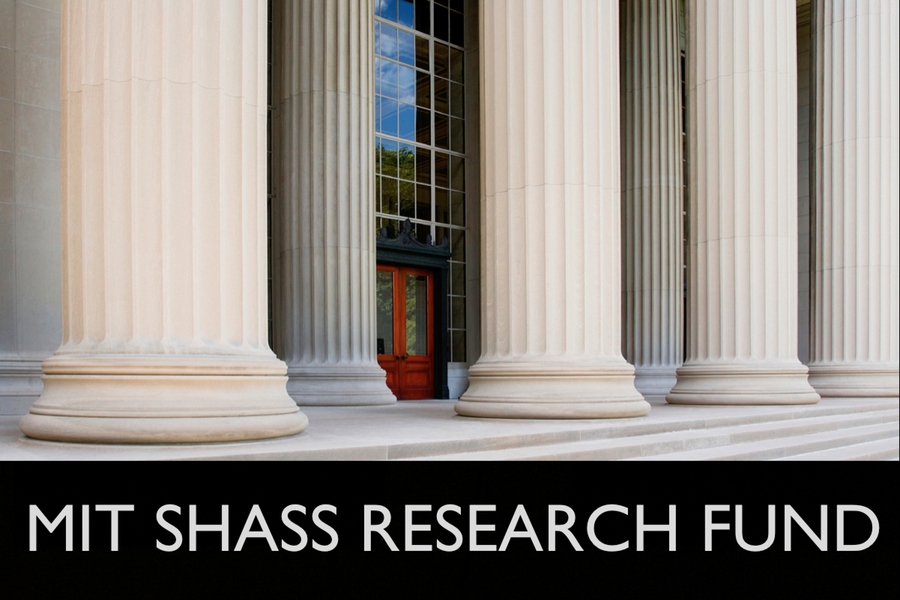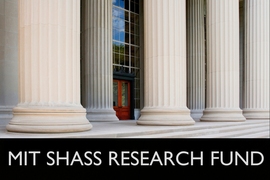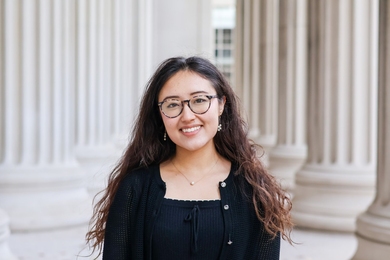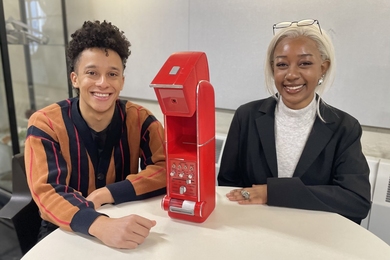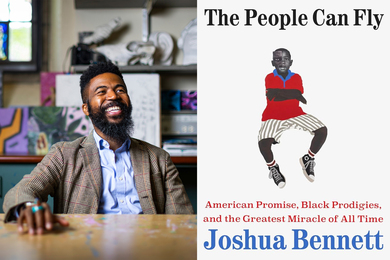The annual SHASS Research Fund supports MIT research in the humanities, arts, and social sciences that shows promise of making an important contribution to the proposed area of activity. The 10 recipients for 2018 are:
Nikhil Agarwal, assistant professor of economics: The near-universal coverage of dialysis treatments under Medicare, including for people under age 65, is unique in the U.S. health care system. Agarwal plans to use his SHASS research funding to analyze previously collected data to explore whether and how Medicare reimbursement rates affect the quiality of dialysis care and patient outcomes.
Charlotte Brathwaite, assistant professor of music and theater arts: SHASS research funding will support "Forgotten Paradise: Grazettes Sun," a film project by director Brathwaite. Inspired by being united with her estranged brother for the first time, Brathwaite plans to take a small crew on a research trip to the Gold Coast (Ghana, Benin, and Togo) to excavate the jigsaw puzzle of history and memory and to identify locations significant to her own ancestry and the trans-Atlantic slave trade.
Sarah Brown, director of design for music and theater arts: SHASS research funding will allow Brown to join the production of Gregory Spears’ opera, "Fellow Travelers," which dramatizes the lives of Americans whose careers were ended and lives were transformed during the "Lavender Scare," a period in the Cold War when LGBTQ people were expelled from the federal government because of their sexual identities.
Lerna Ekmekcioglu, associate professor of history: Ekmekcioglu's funding will support her ongoing book and digital humanities project, "Feminism in Armenian: An Interpretive Anthology and a Digital Archive." With Melissa Bilal, a visiting scholar with MIT History, Ekmekcioglu traces the development of Armenian feminist thought from the 1860s to the 1960s. It will be the first collection in English on the topic.
Malick Ghachem, associate professor of history: Ghachem's book on the rise of plantation capitalism in Haiti during the 1720s, "The Old Regime and the Haitian Revolution," will be translated into French with the support of SHASS research funding, making the work available to Francophone scholars in France and elsewhere in the French-speaking world. Funding will also allow Ghachem to present his research in France upon its publication by Éditions Karthala and the Centre international de recherches sur les esclavages.
Frederick Harris, Jr., director of wind and jazz ensembles for music and theater arts: With the support of SHASS research funding, Harris plans to begin researching the life and musical career of Herb Pomeroy (1930-2007) toward a biography with the working title of "It’s the Note You Don’t Play: The musical life of Herb Pomeroy." In addition to portraying Pomeroy's personal life, this book will analyze the three major areas of his musicianship: trumpeter, director/conductor, and educator.
Mark Harvey, senior lecturer in music and theater arts: SHASS Research Fund support will enable the recording and production of a new album of original compositions by Harvey, all performed with the Aardvark Jazz Orchestra. The centerpiece will be “Swamp-a-Rama,” a composition at turns satirical and serious that responds to the current sociopolitical climate in the United States.
Sabine Iatridou, professor of linguistics: In Dutch and German, question words such as “what” are identical to existential words such as “something." Why does a single word have these two different meanings? Which meaning came first in the development of the language? What does that tell us about the development of language more generally? Iatridou will explore these questions with the support of SHASS research funding in coordination with colleagues from the University of Amsterdam.
Seth Mnookin, professor of comparative media studies/writing: Funding will support a new book focused on the cultural, historical, and scientific underpinnings of how we age, as well as on research efforts designed to extend both lifespan and healthspan. In addition to providing a detailed overview of research that could reframe how we think about aging, the book will offer readers a guide to what age-related issues can be mitigated by changes to lifestyle, medical interventions, or pharmacological interventions — and which paths to avoid.
Ariel White, assistant professor of political science: With an unprecedented amount of material, White and her colleagues will use a textual analysis tool to analyze the language used to report on crime, asking whether and to what extent local media outlets focus mostly on crimes committed by nonwhite suspects. They will also analyze the relationship between reporting trends and actual crime statistics to see whether these publications accurately reflect the level and type of crime.
MIT's School of Humanities, Arts, and Social Sciences is home to research that has a global impact, and to graduate programs recognized as among the finest in the world. The school's research portfolio includes international studies, linguistics, economics, poverty alleviation, history, literature, anthropology, digital humanities, philosophy, global studies and languages, music and theater, writing, political science, security studies, women's and gender studies, and comparative media studies. MIT's SHASS research helps alleviate poverty; safeguard elections; steer economies; understand the past and present; assess the impact of new technologies; understand human language; create new forms at the juncture of art and science; and inform policy and cultural mores on issues including justice, healthcare, energy, climate, education, work and manufacturing, inclusion, and economic equity.
